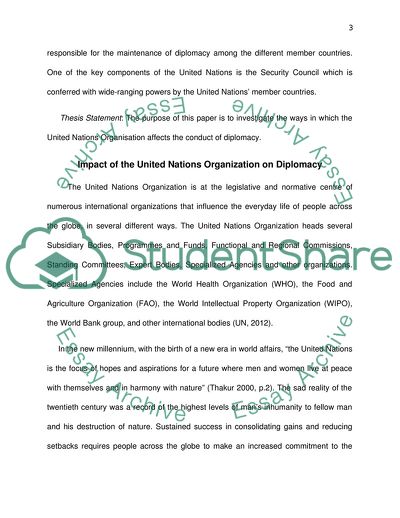Cite this document
(The United Nations Organisations Effect On The Conduct Of Diplomacy Essay, n.d.)
The United Nations Organisations Effect On The Conduct Of Diplomacy Essay. https://studentshare.org/politics/1768017-in-what-ways-has-the-united-nations-organisation-affected-the-conduct-of-diplomacy
The United Nations Organisations Effect On The Conduct Of Diplomacy Essay. https://studentshare.org/politics/1768017-in-what-ways-has-the-united-nations-organisation-affected-the-conduct-of-diplomacy
(The United Nations Organisations Effect On The Conduct Of Diplomacy Essay)
The United Nations Organisations Effect On The Conduct Of Diplomacy Essay. https://studentshare.org/politics/1768017-in-what-ways-has-the-united-nations-organisation-affected-the-conduct-of-diplomacy.
The United Nations Organisations Effect On The Conduct Of Diplomacy Essay. https://studentshare.org/politics/1768017-in-what-ways-has-the-united-nations-organisation-affected-the-conduct-of-diplomacy.
“The United Nations Organisations Effect On The Conduct Of Diplomacy Essay”. https://studentshare.org/politics/1768017-in-what-ways-has-the-united-nations-organisation-affected-the-conduct-of-diplomacy.


